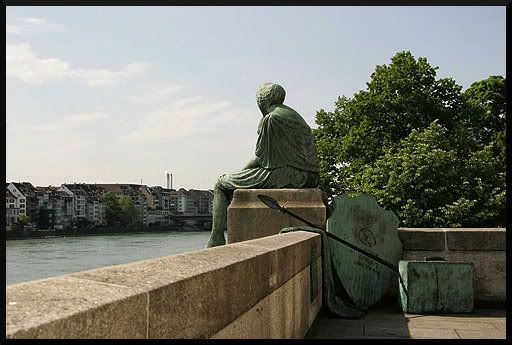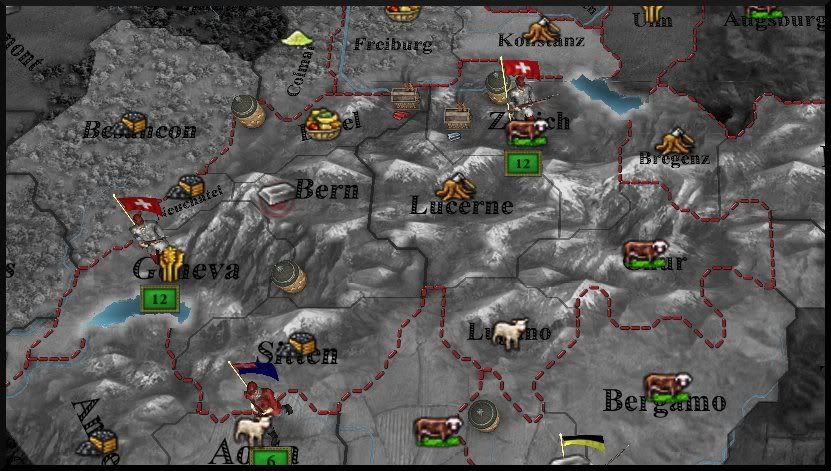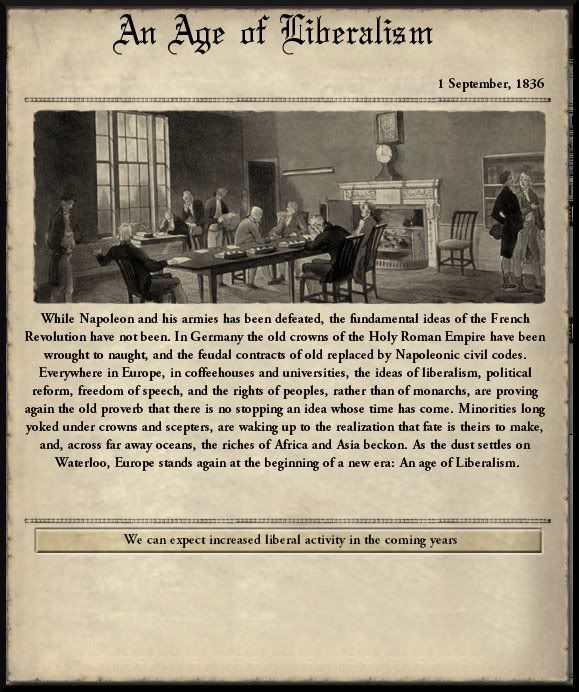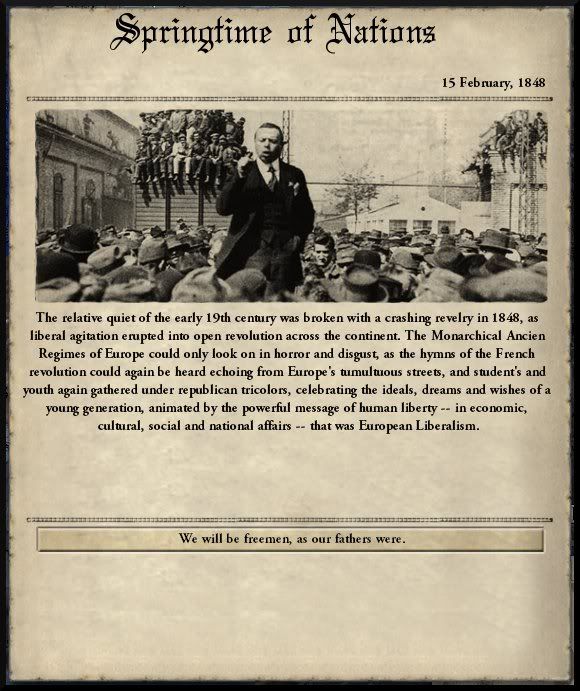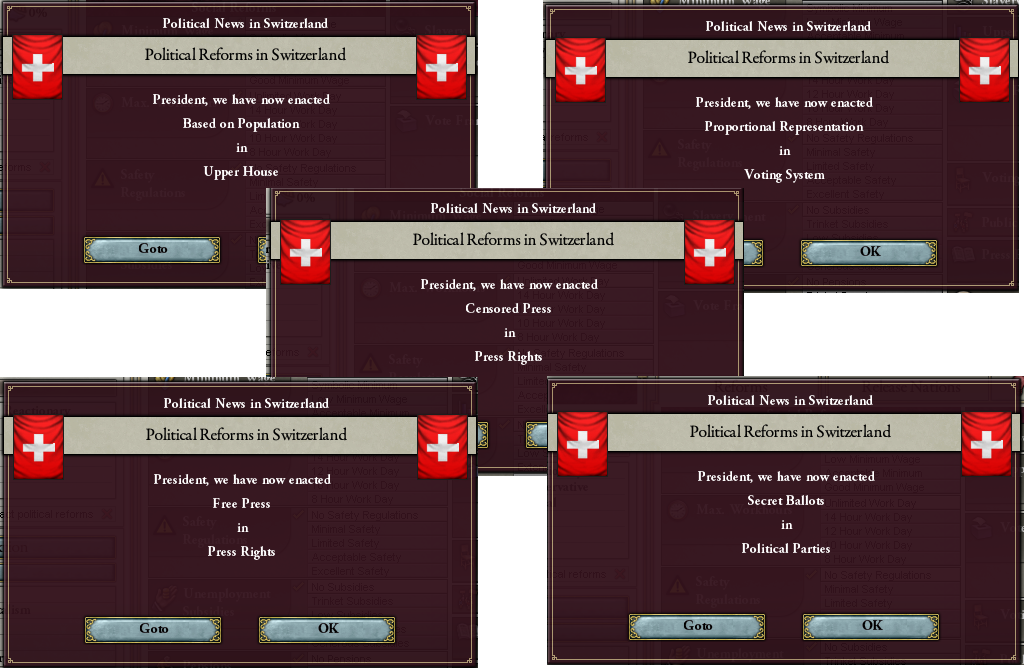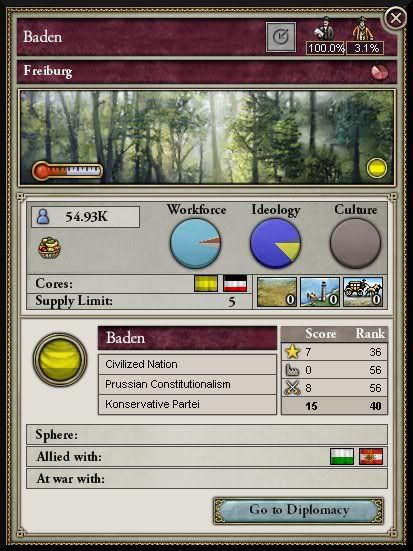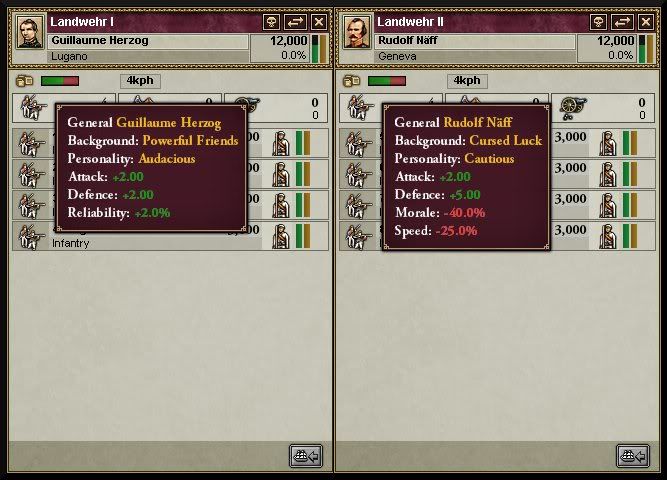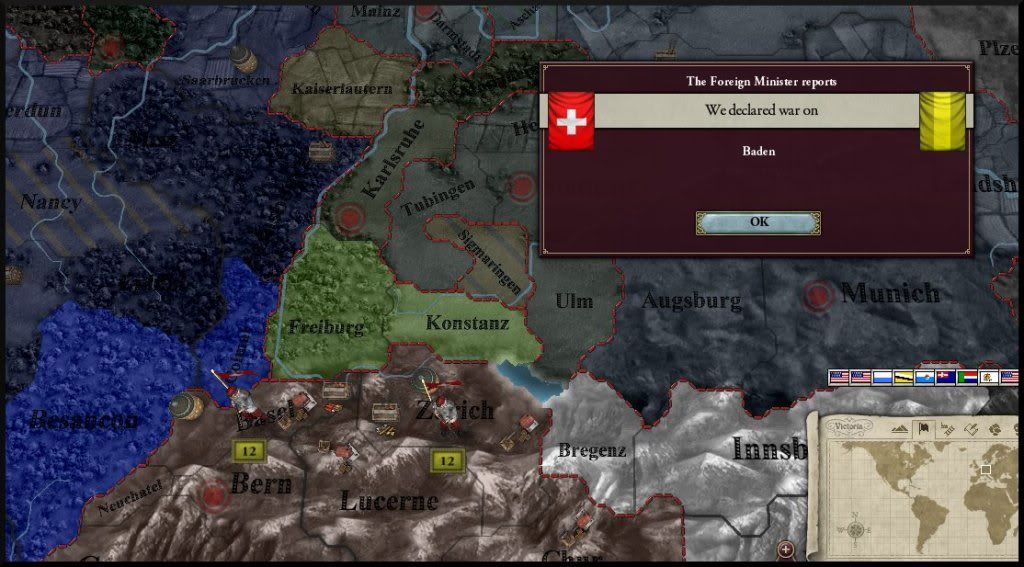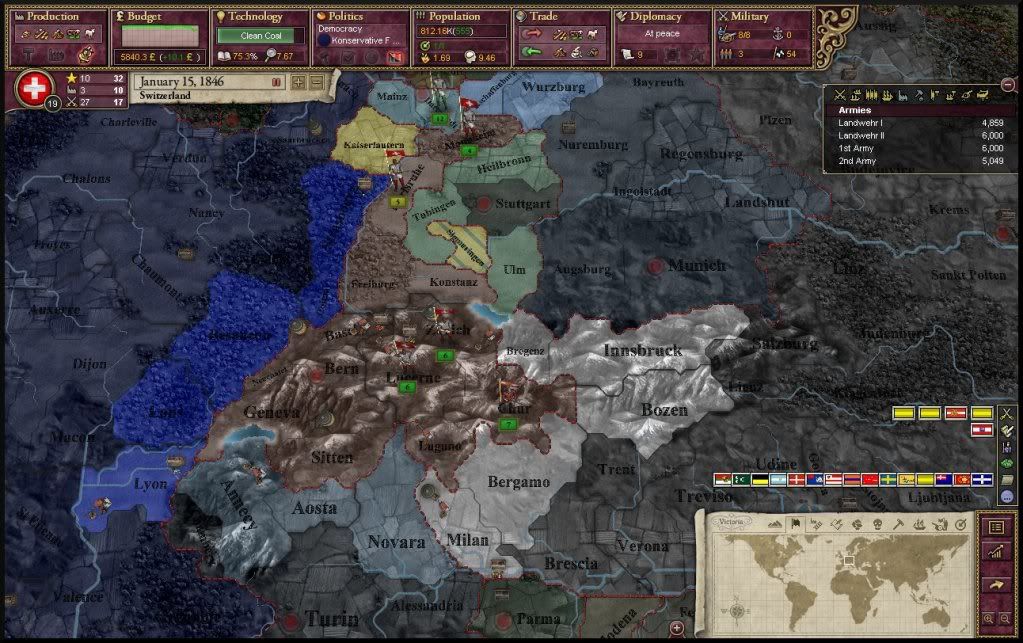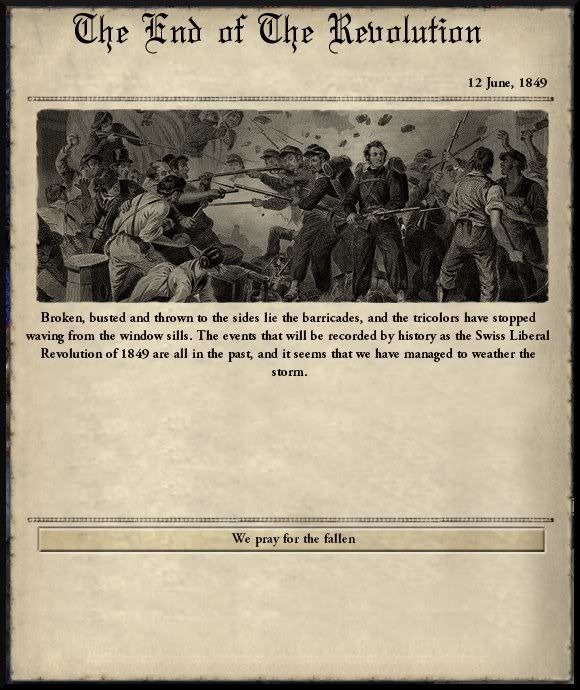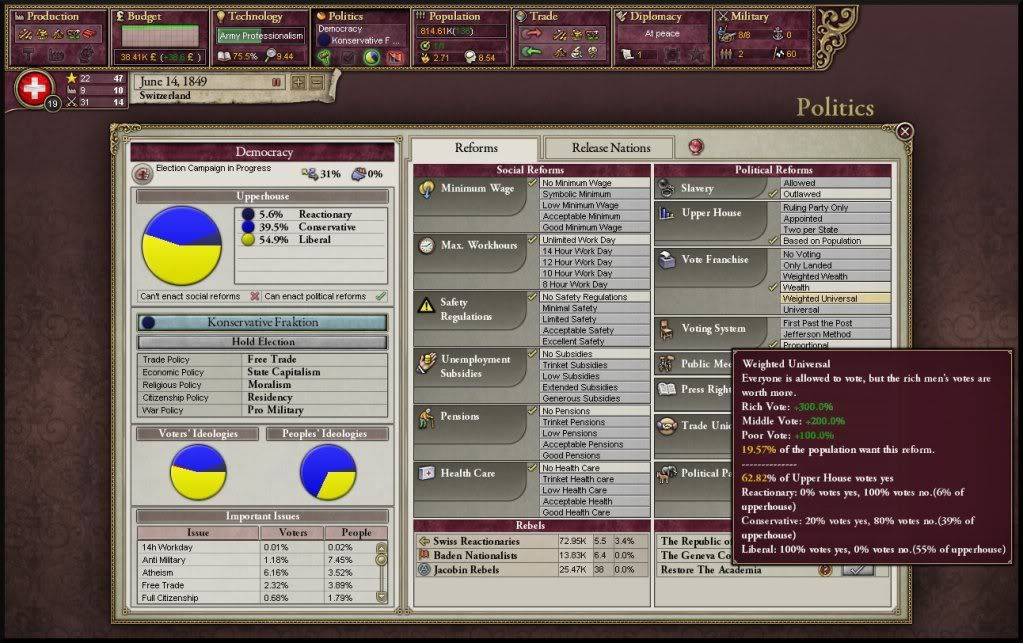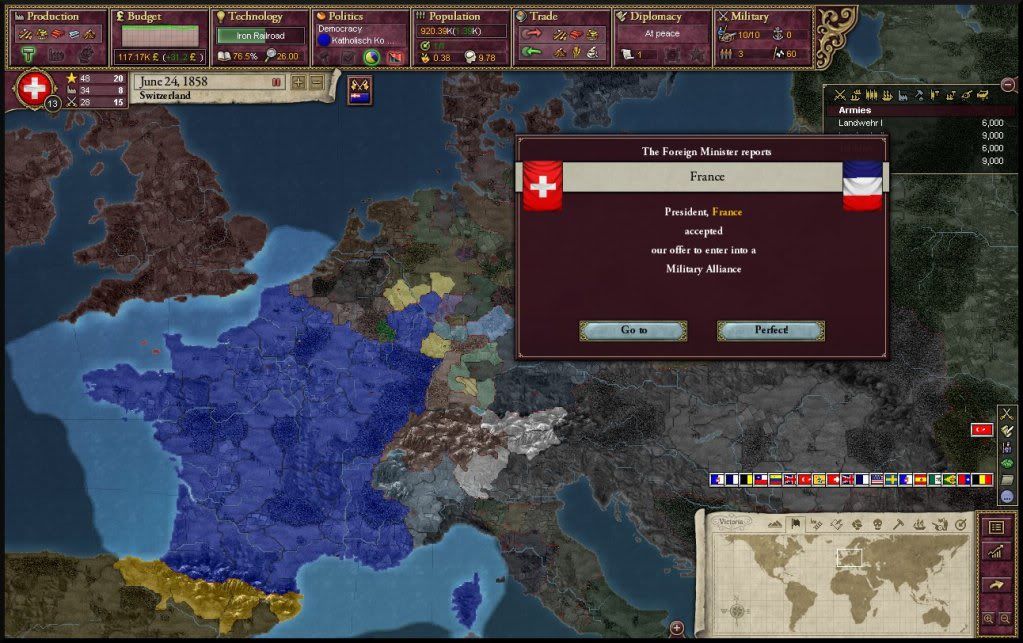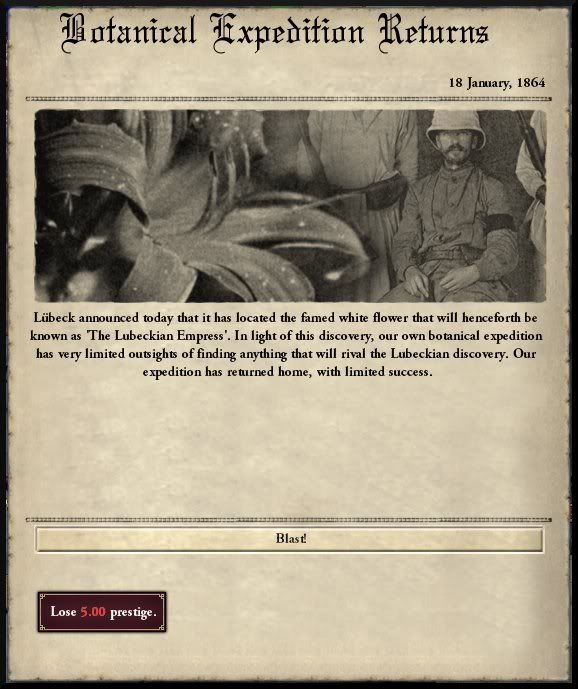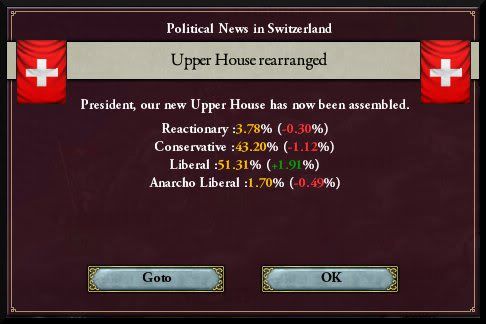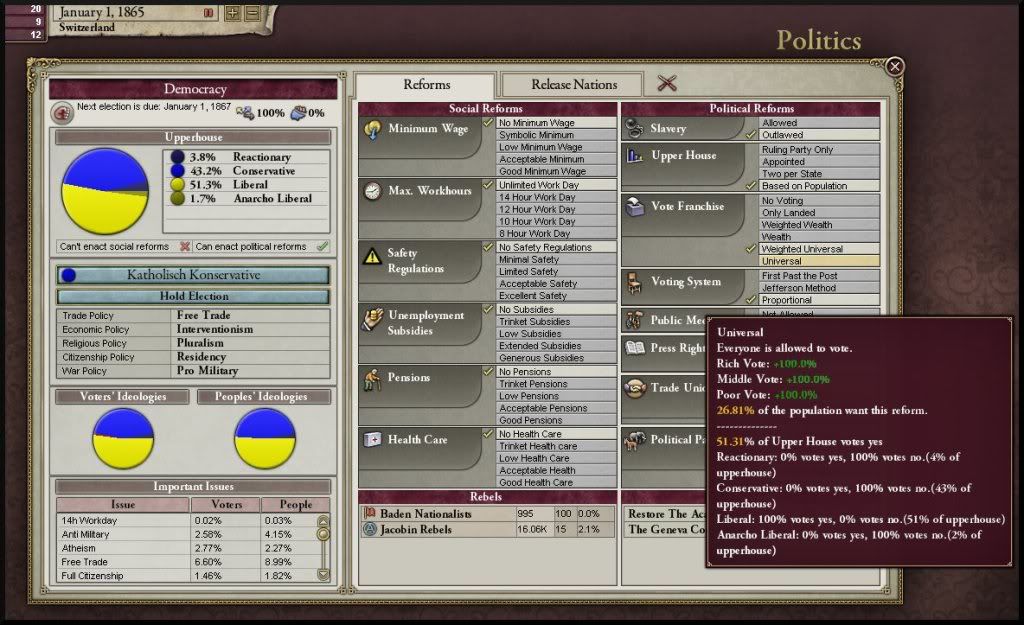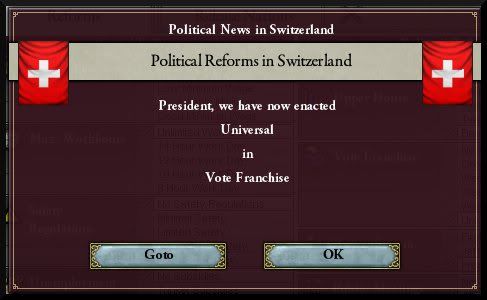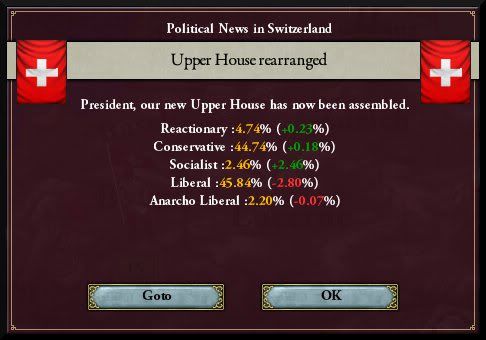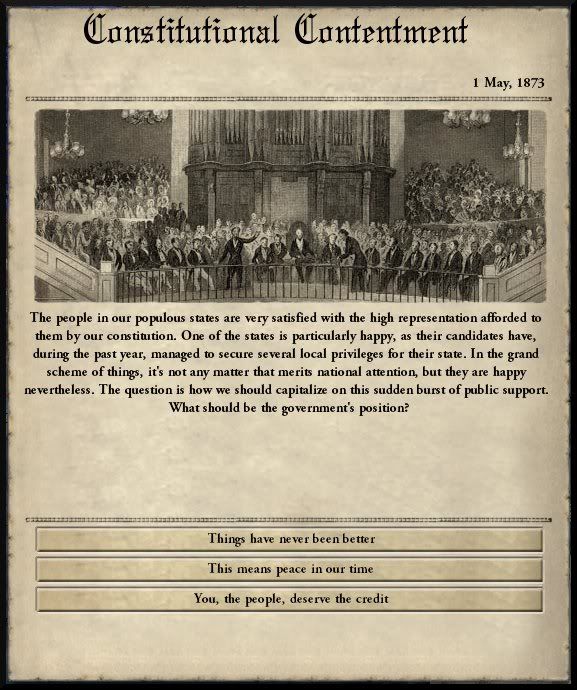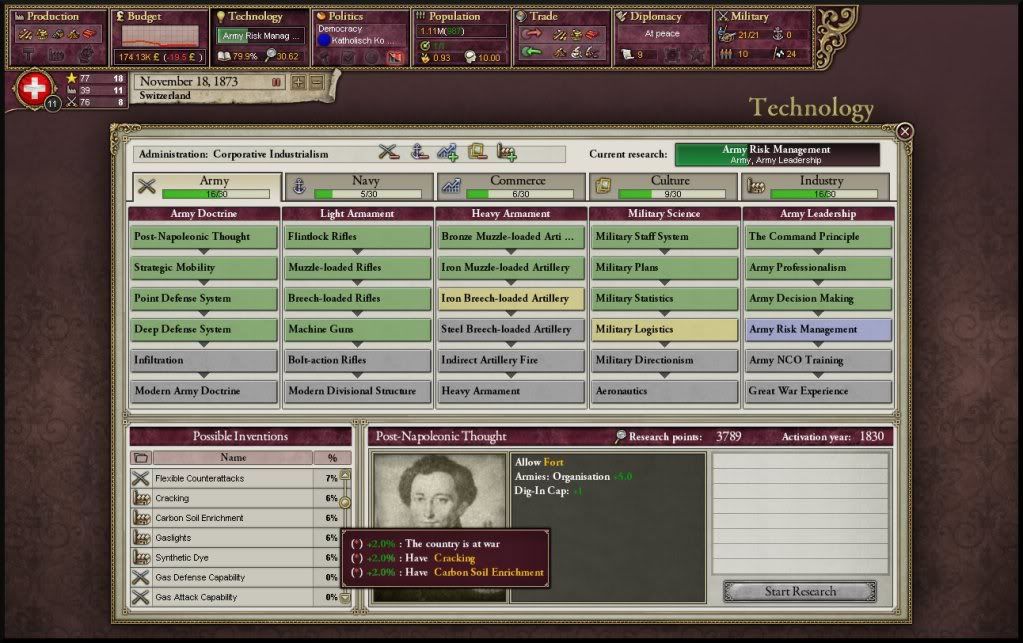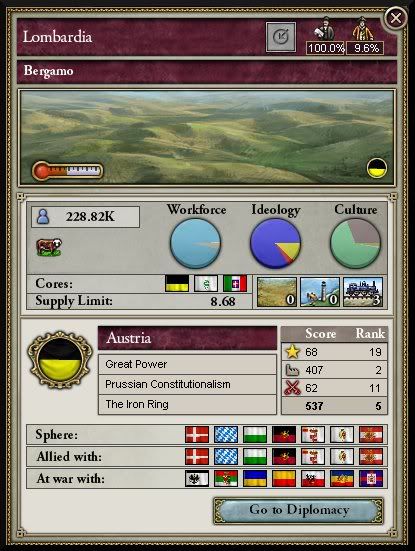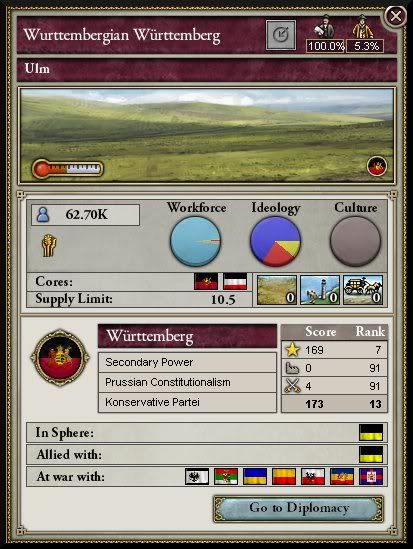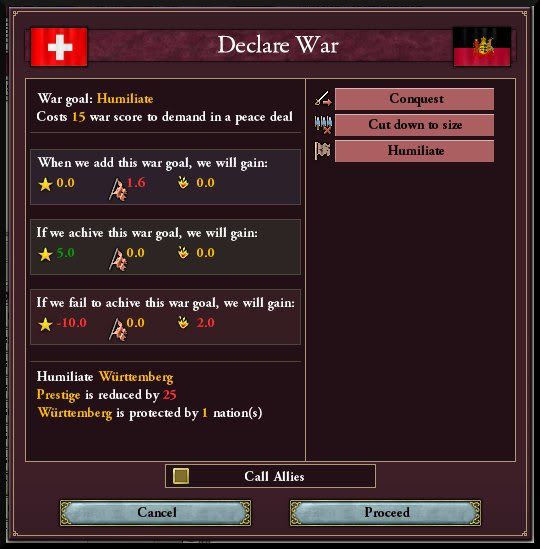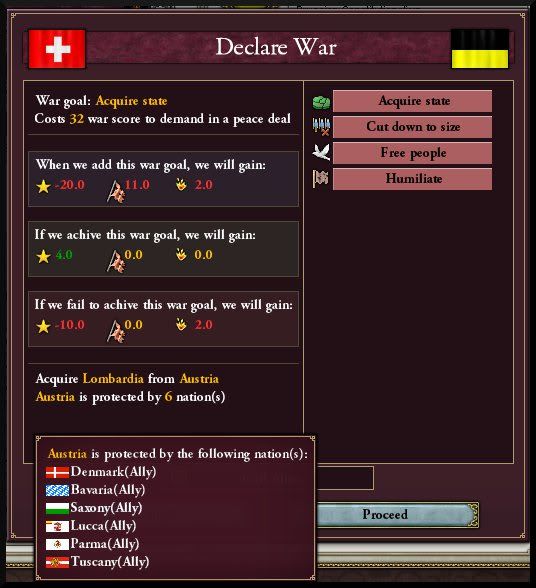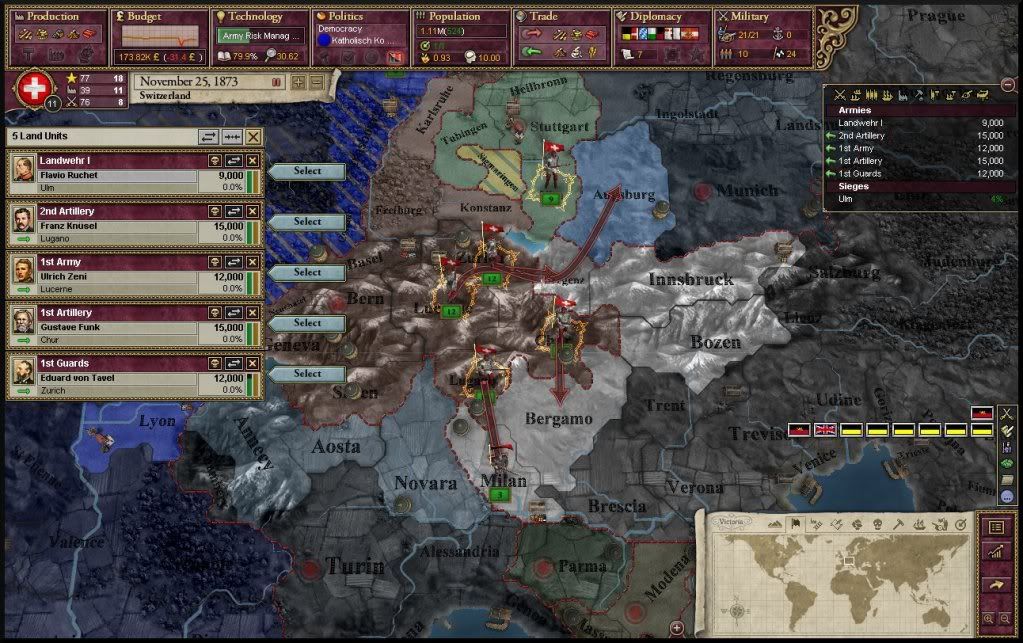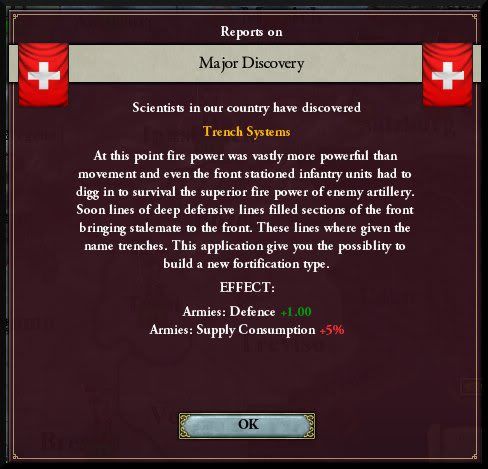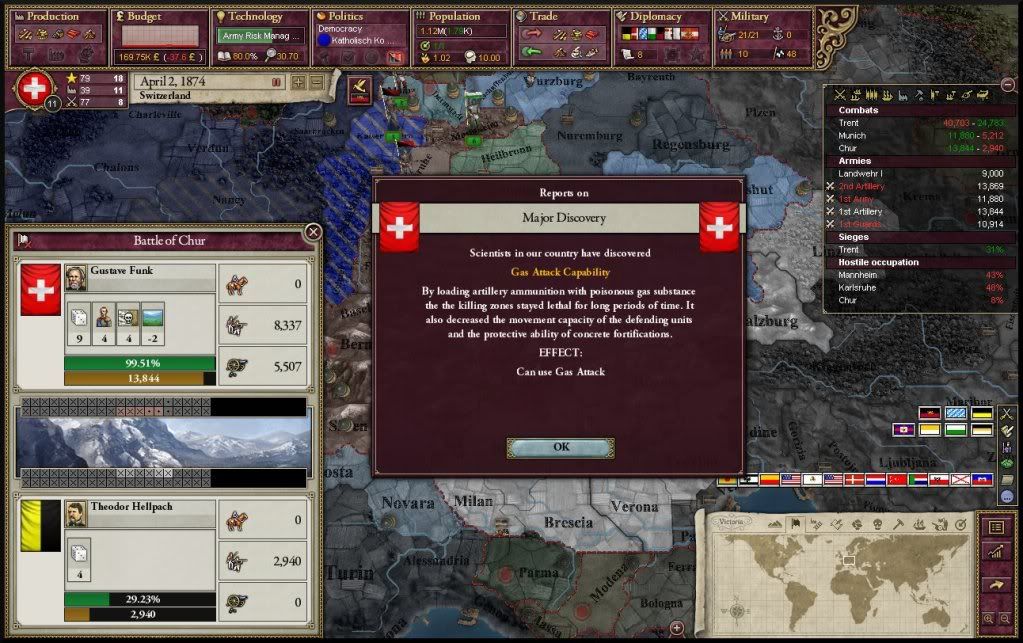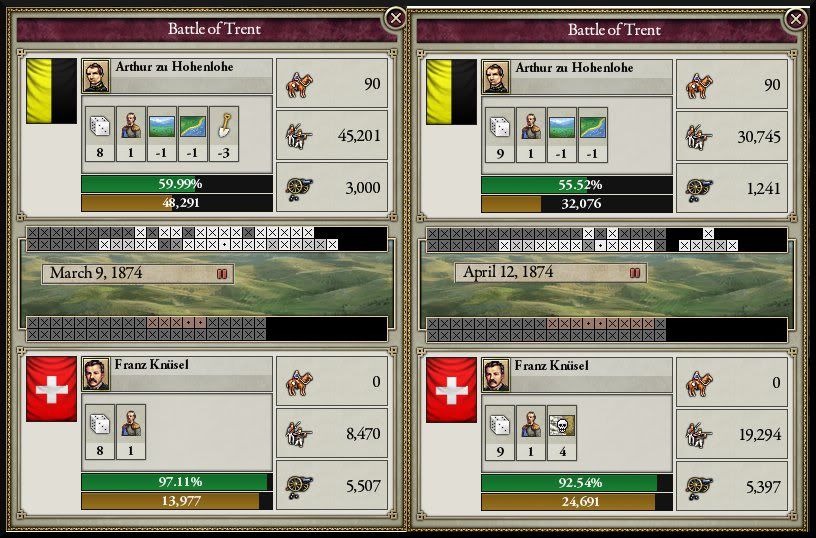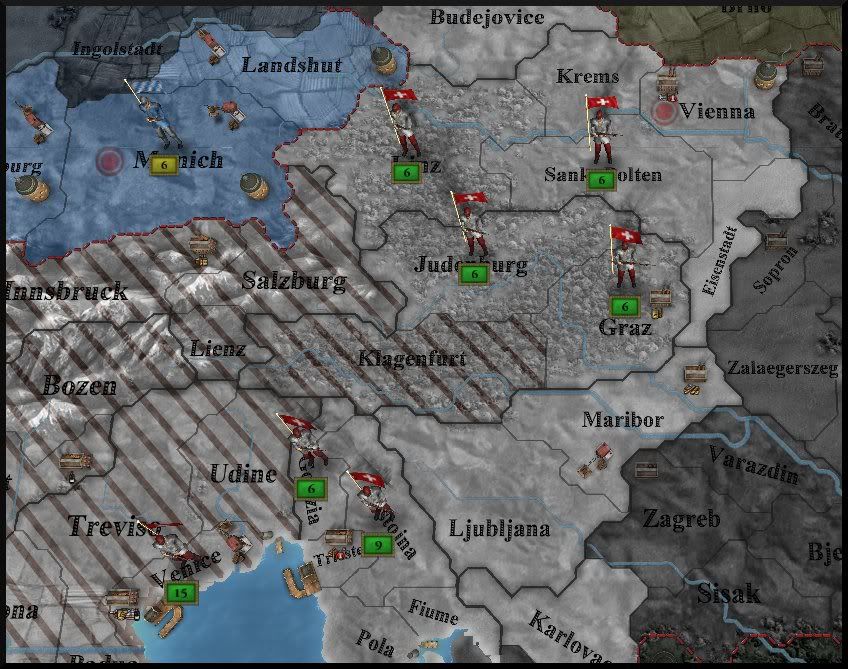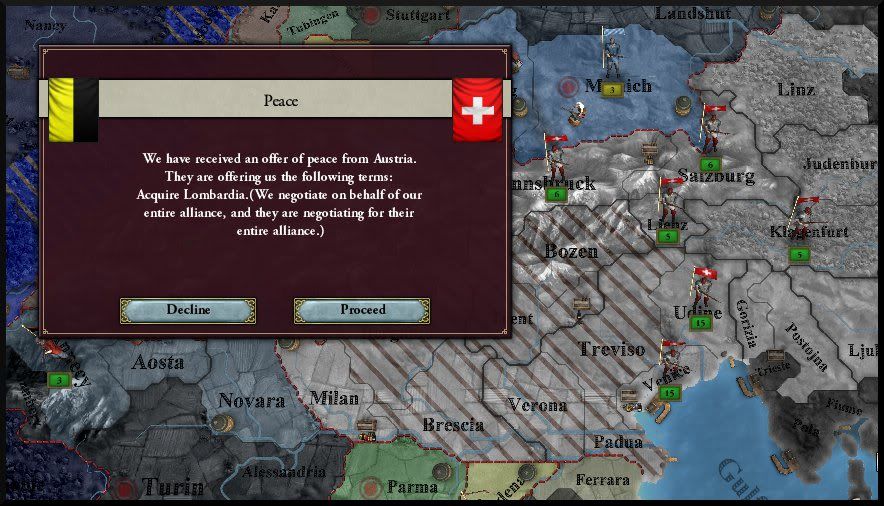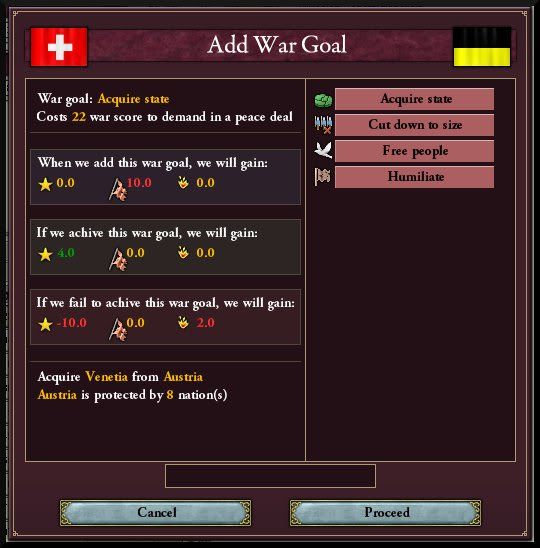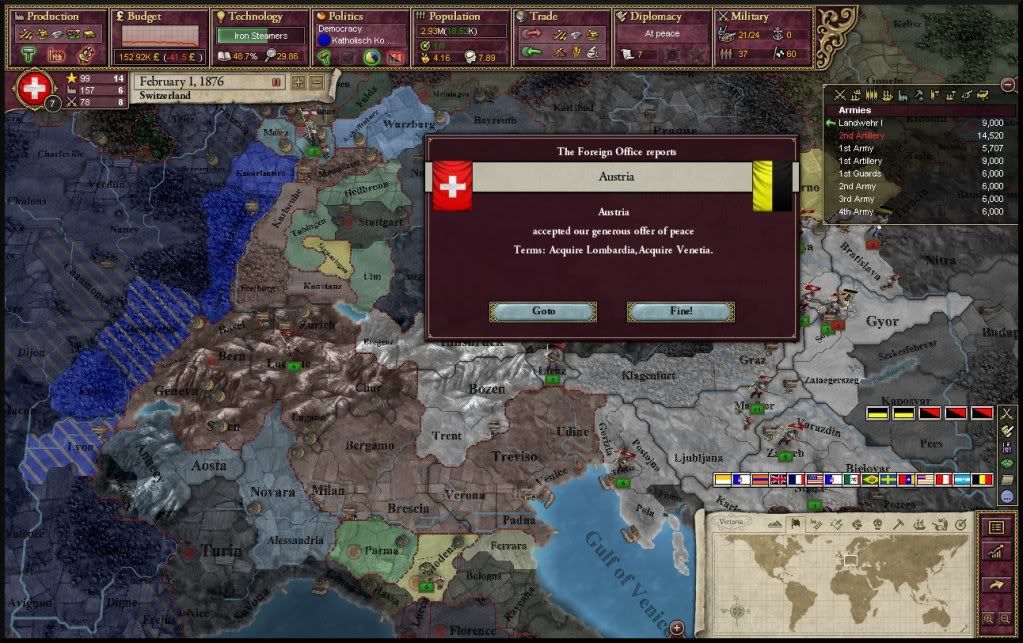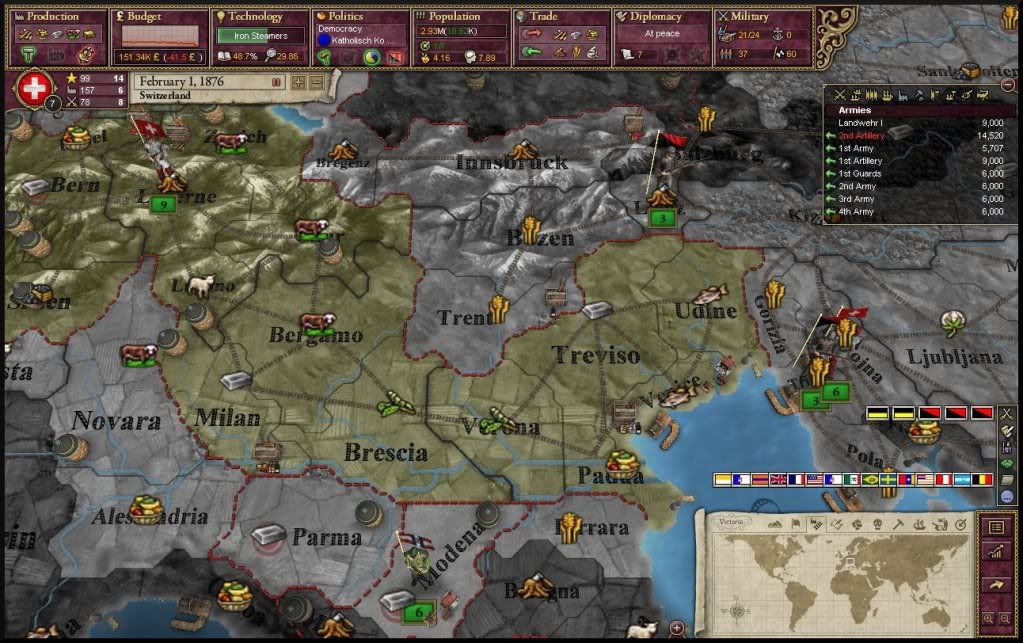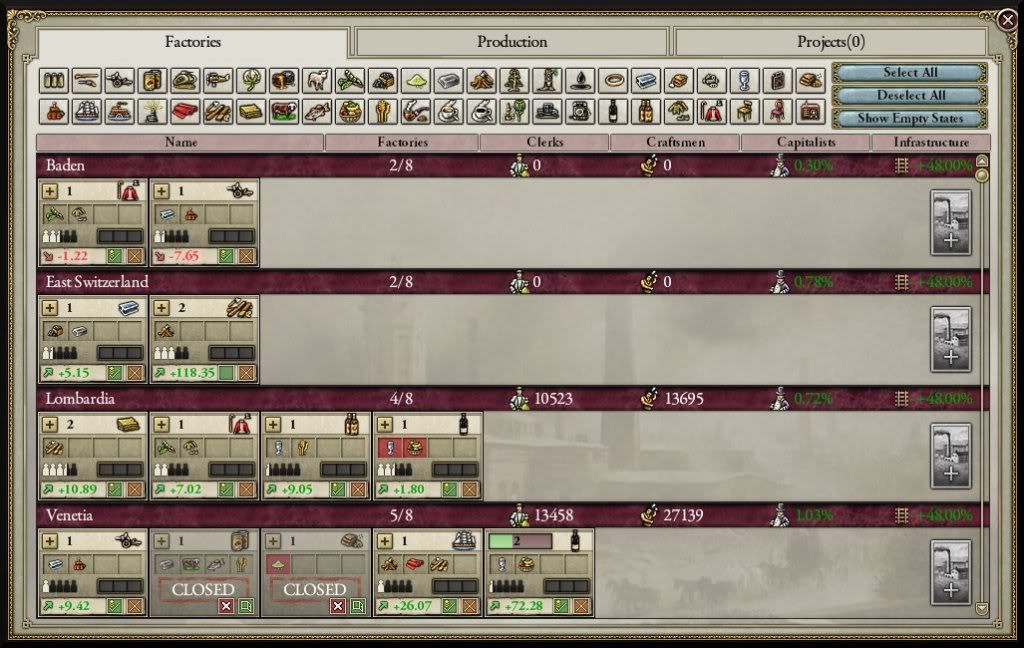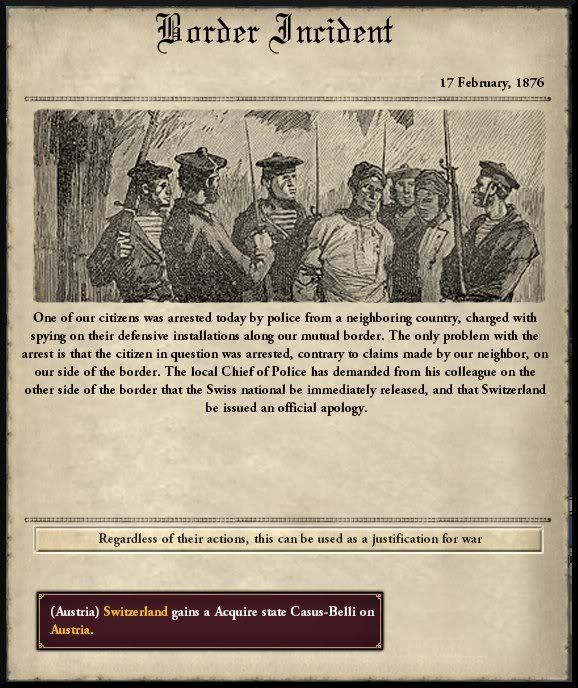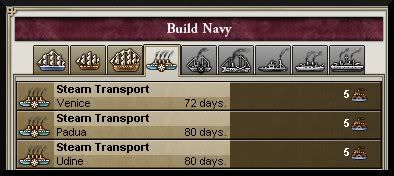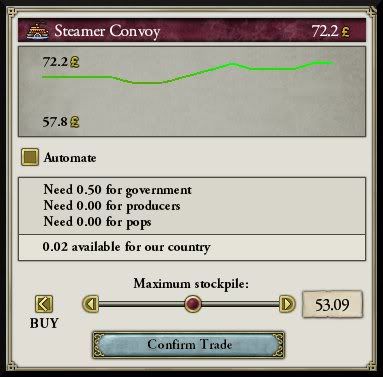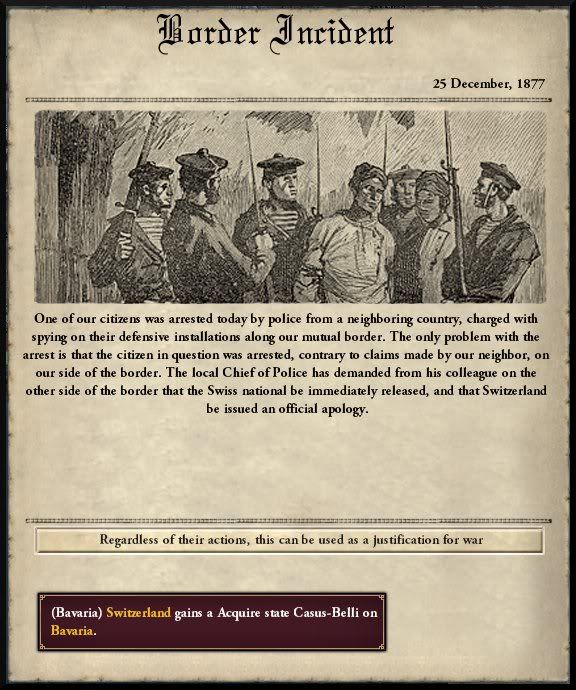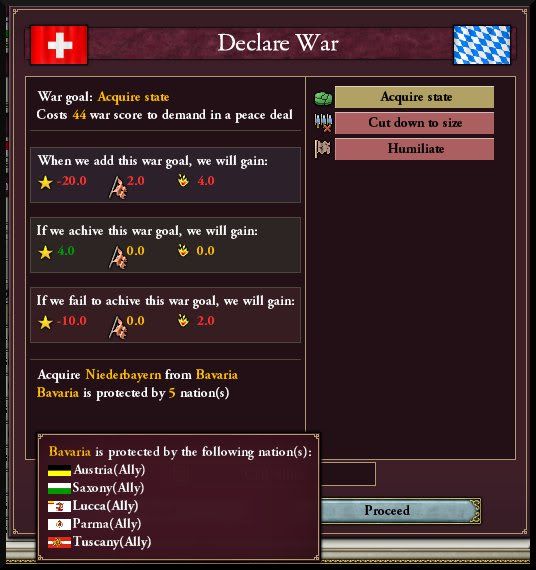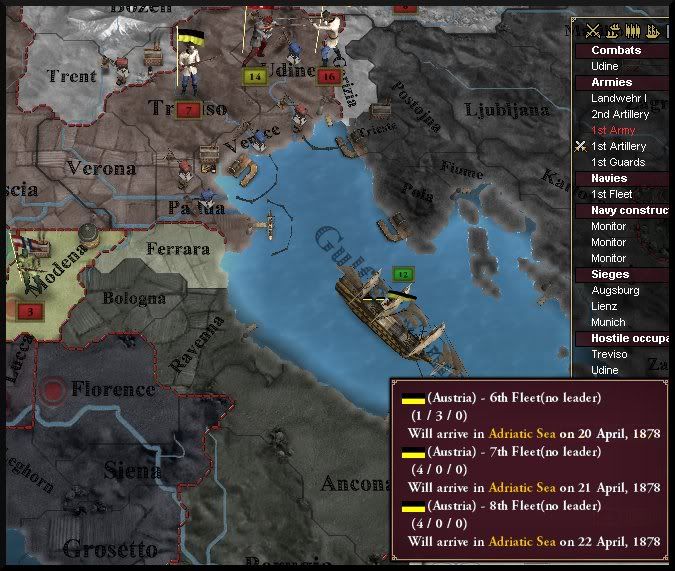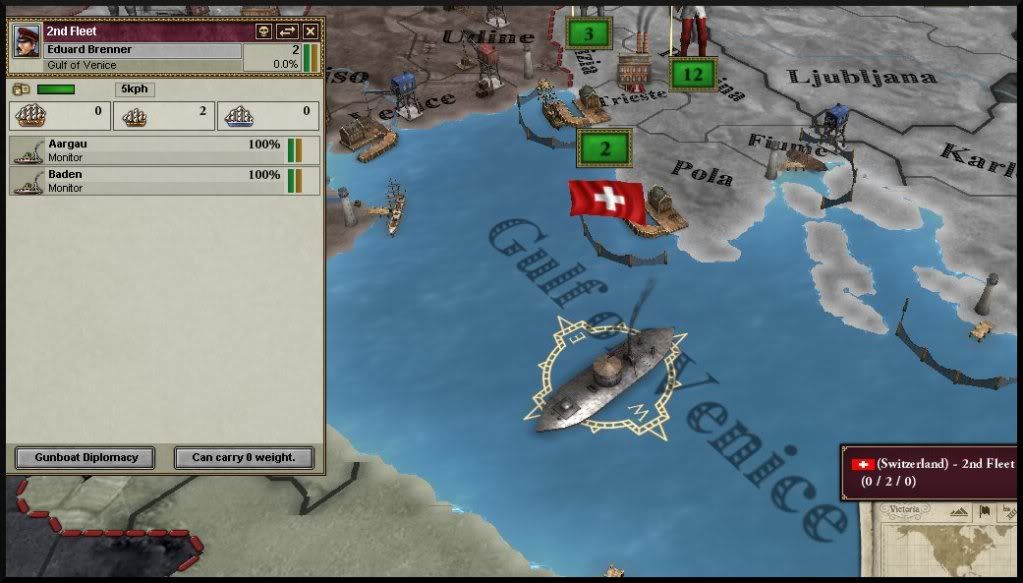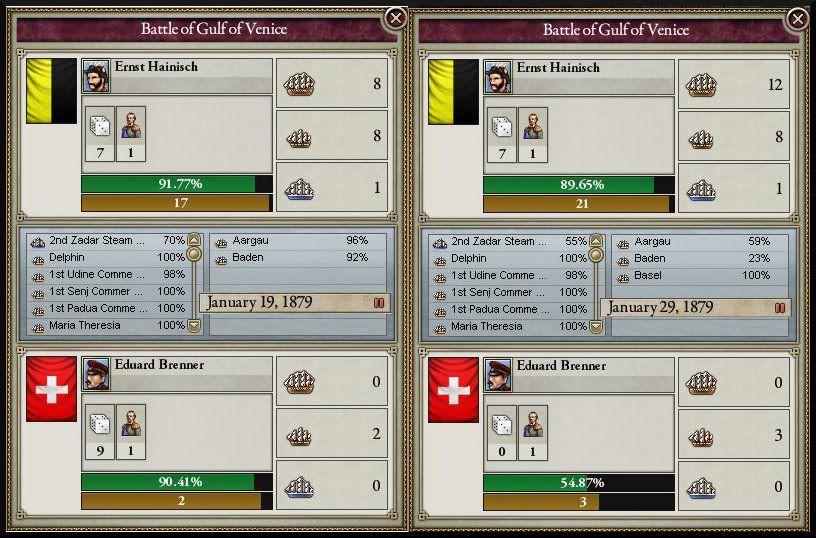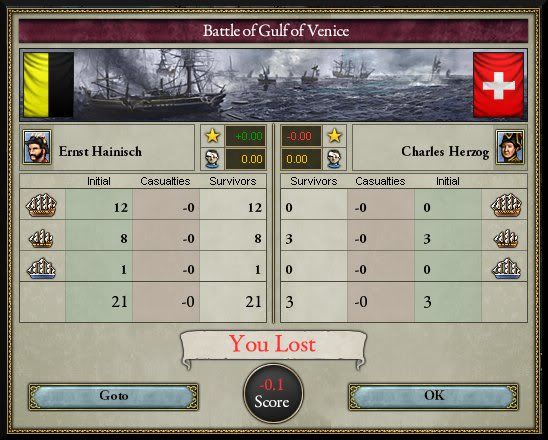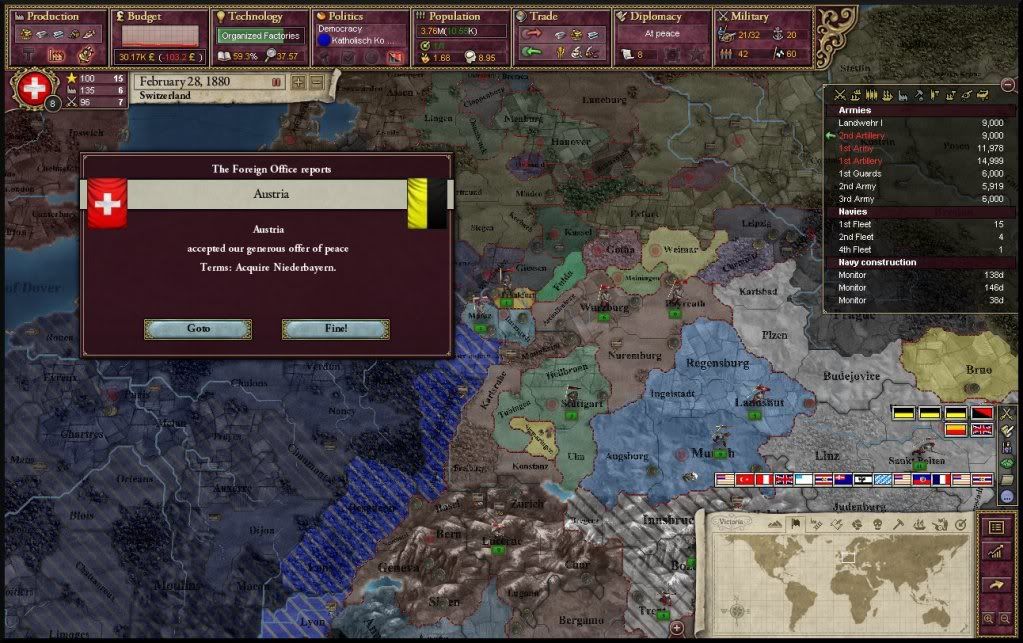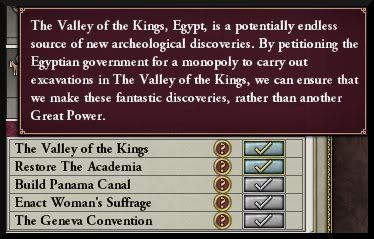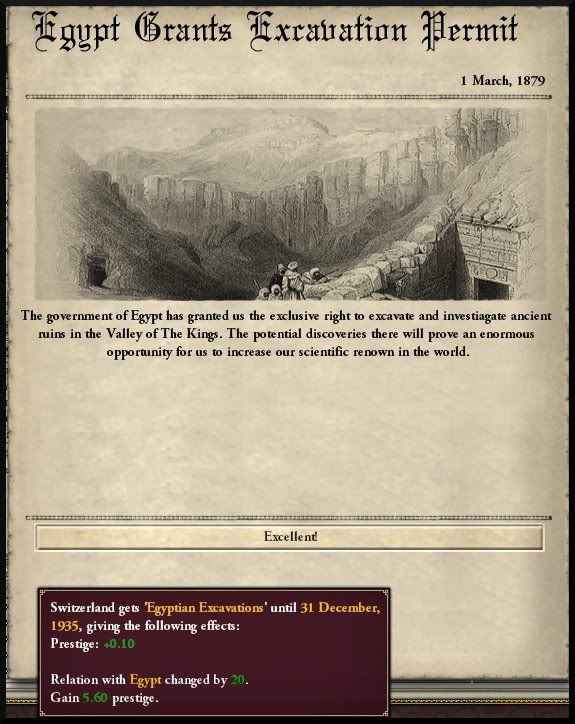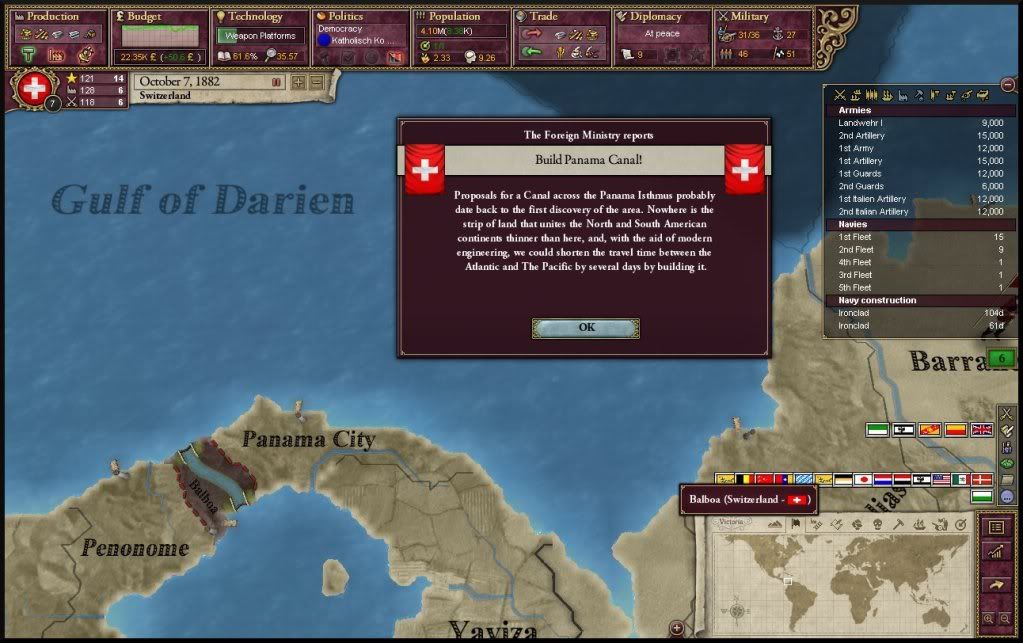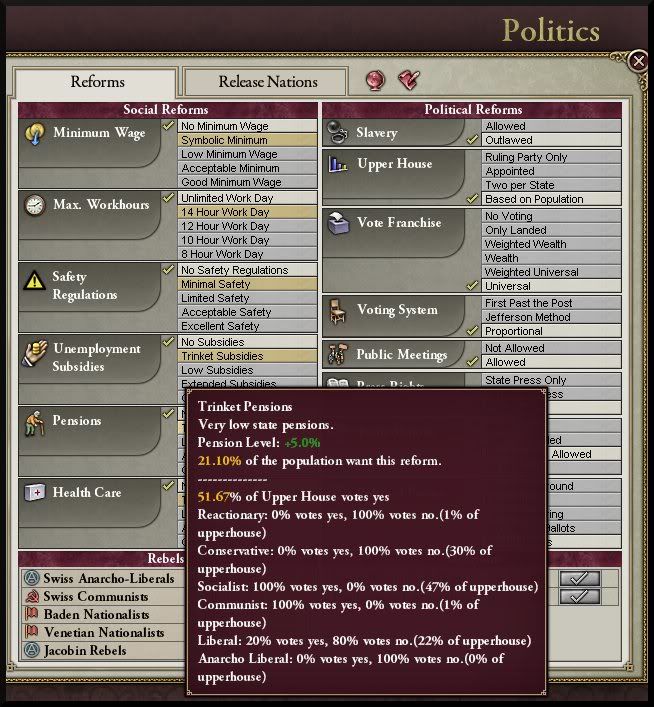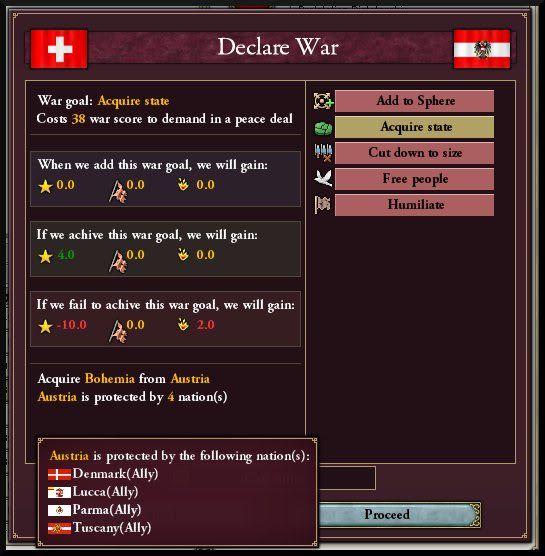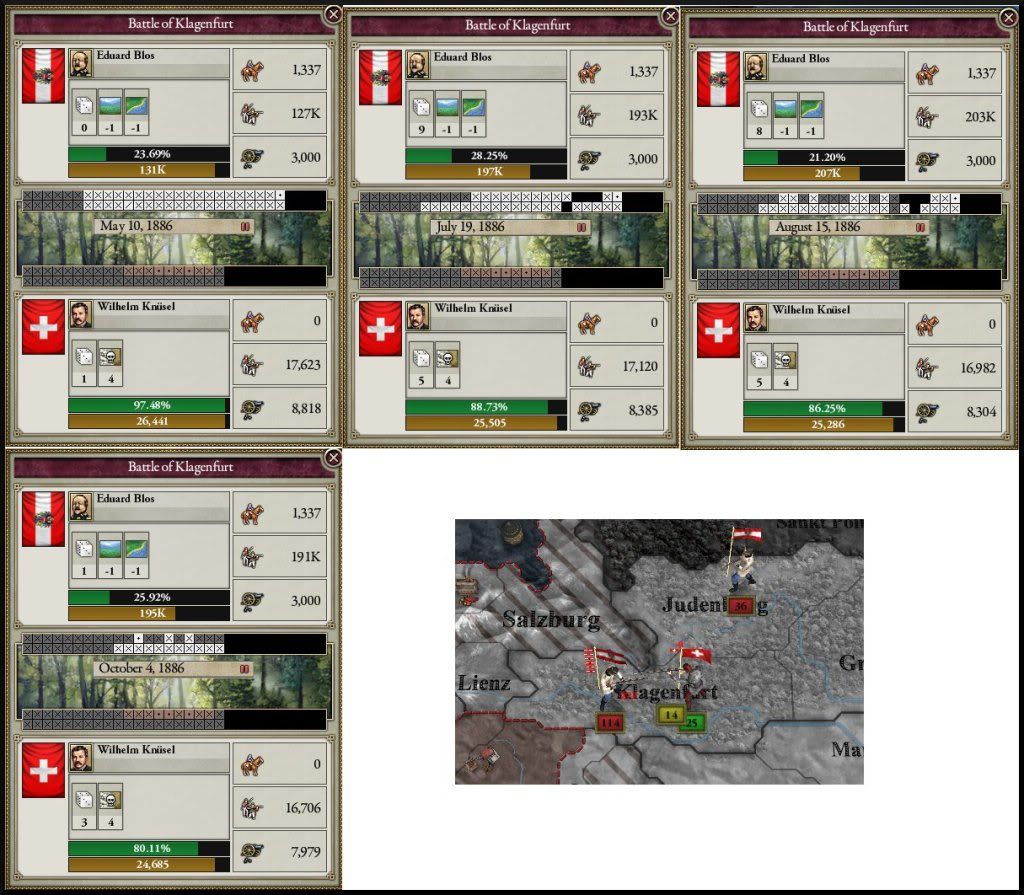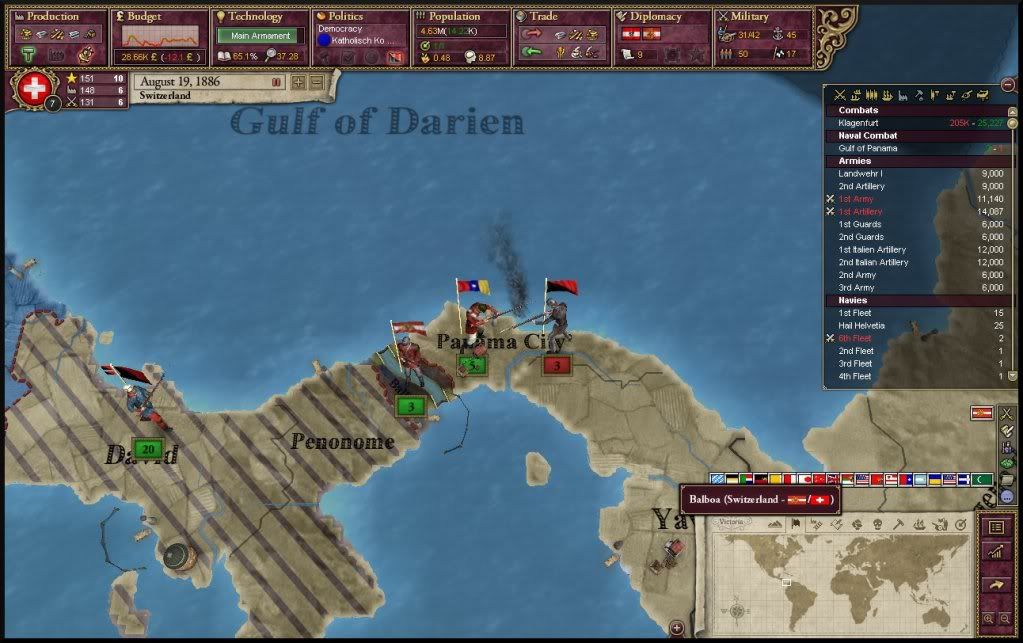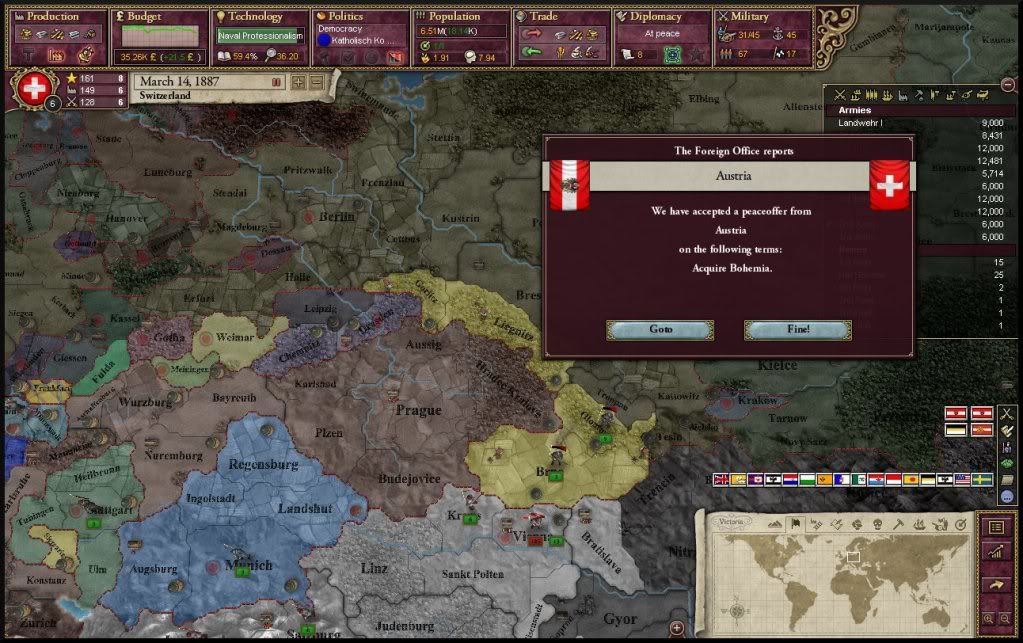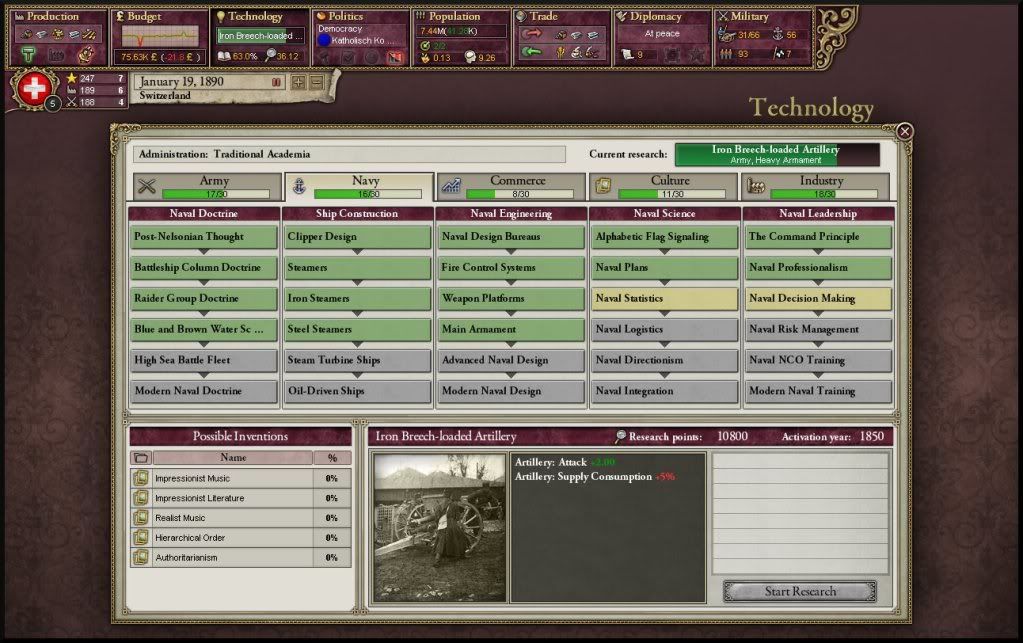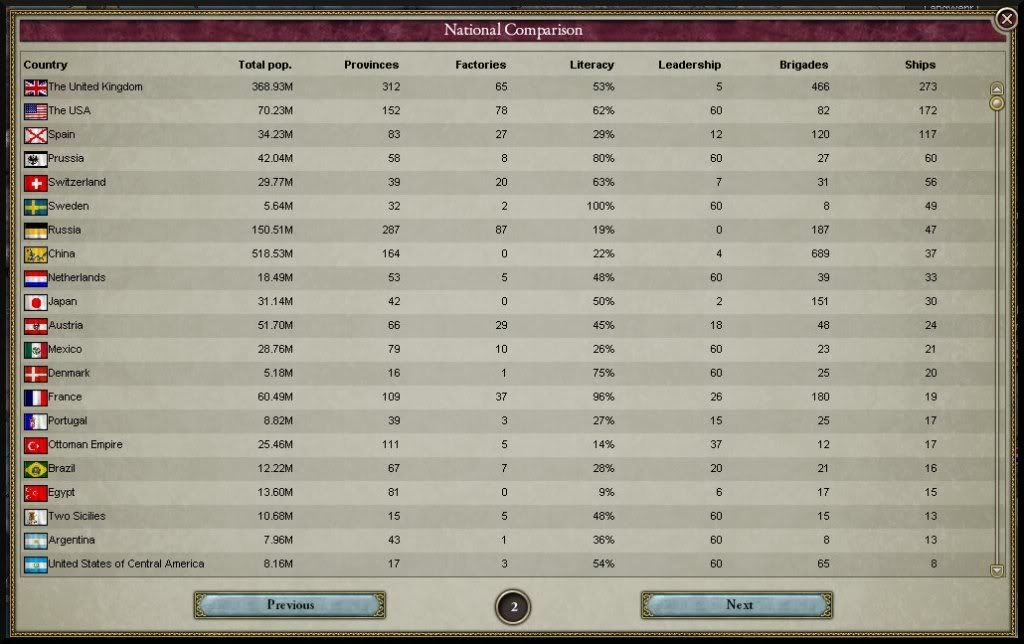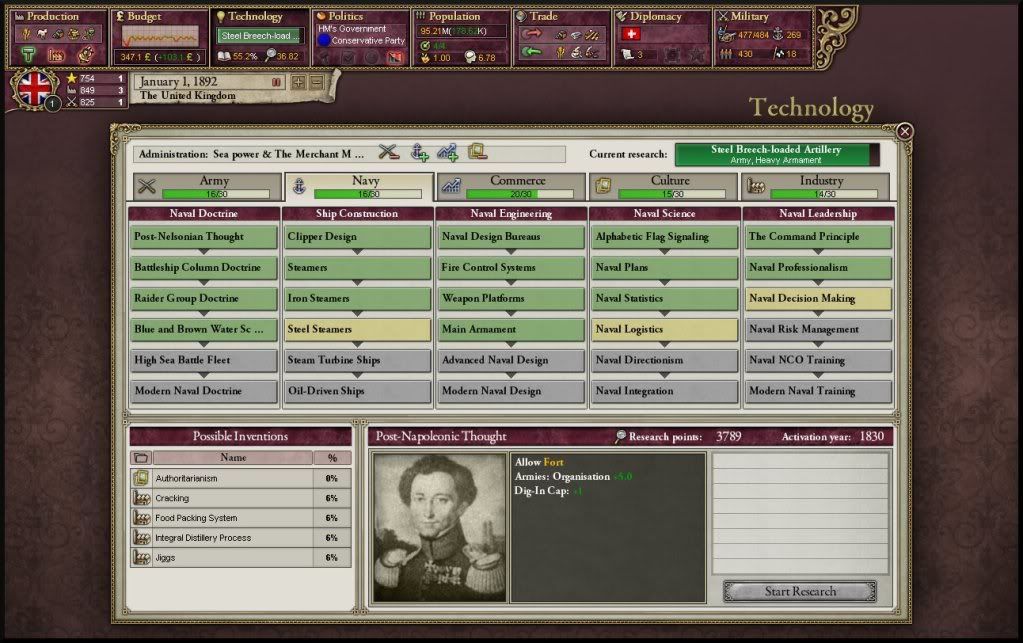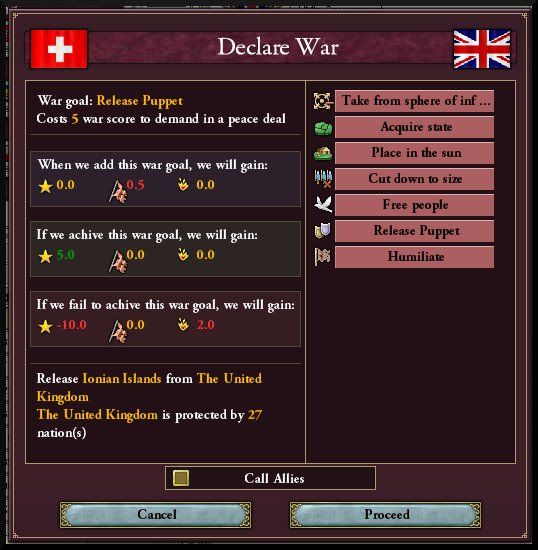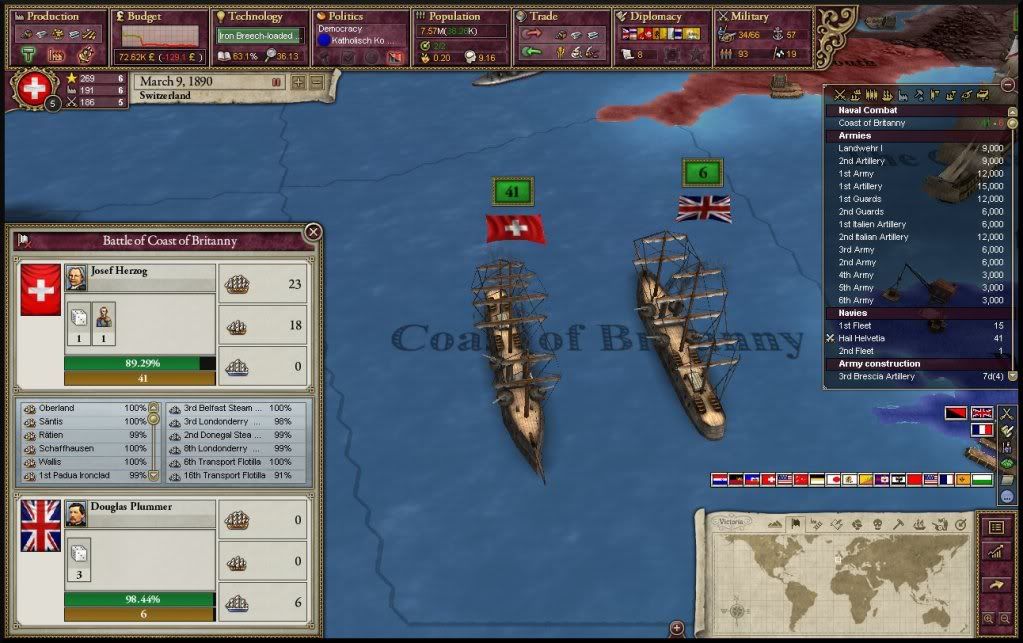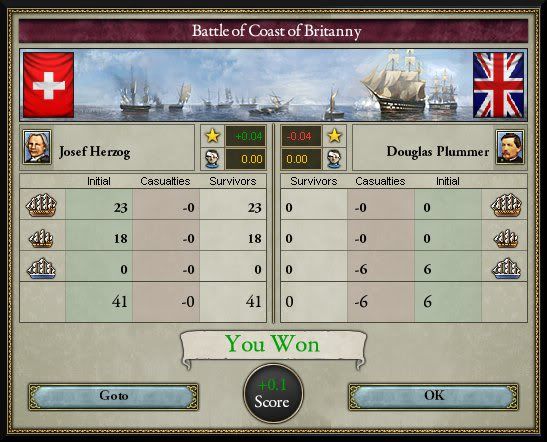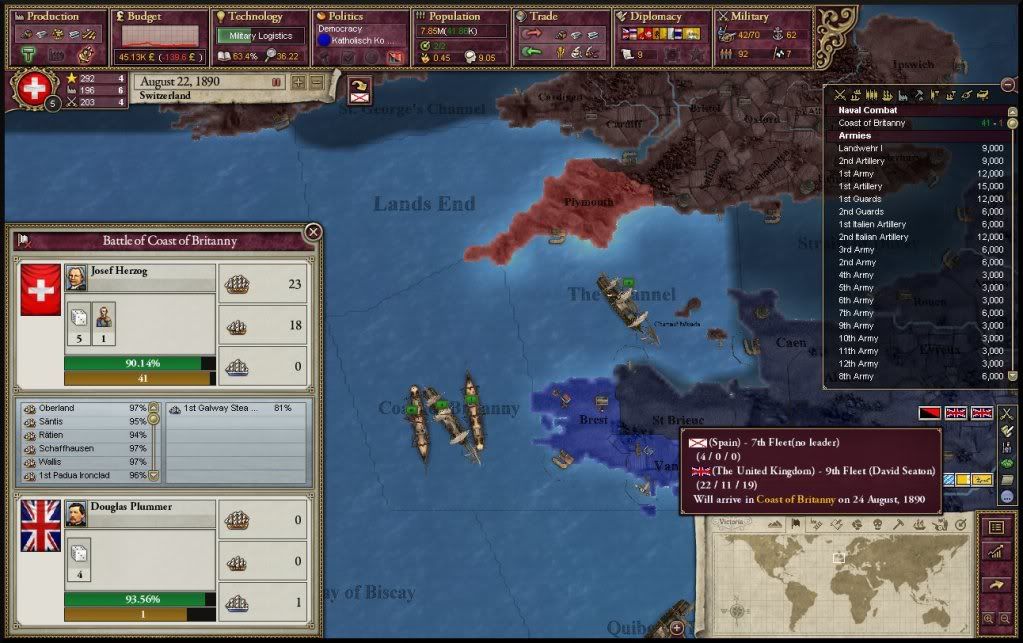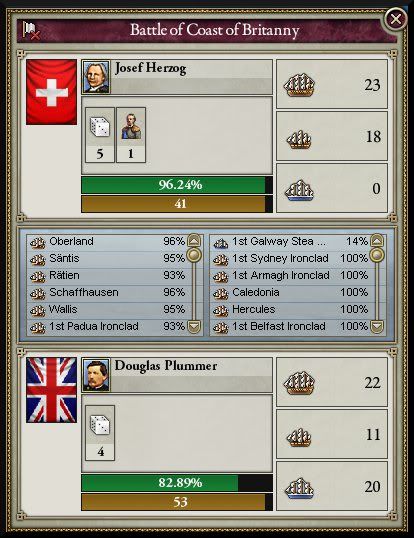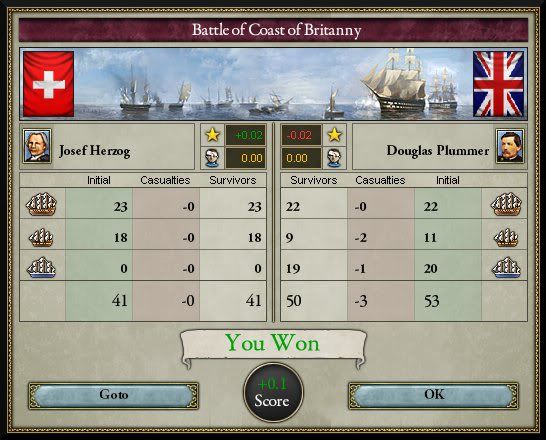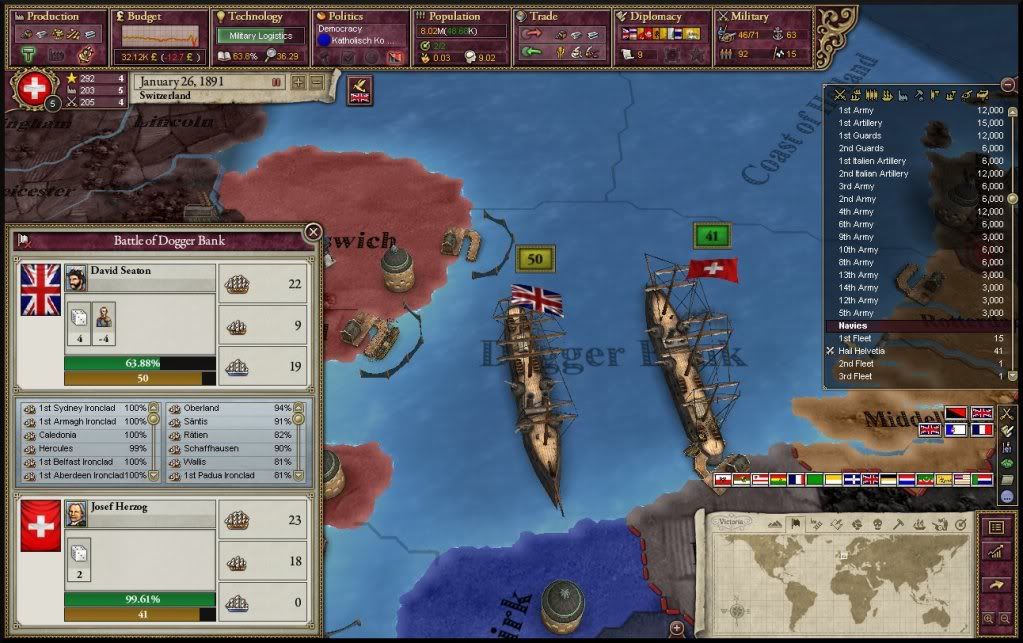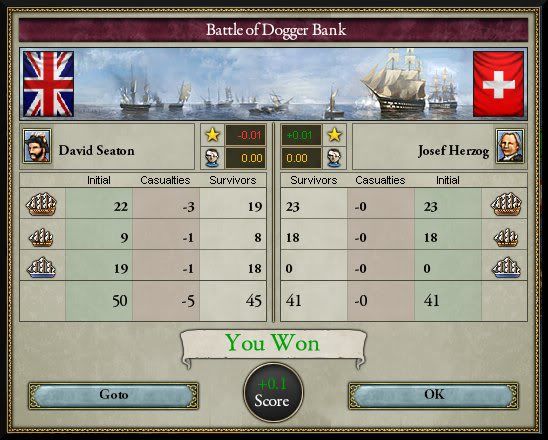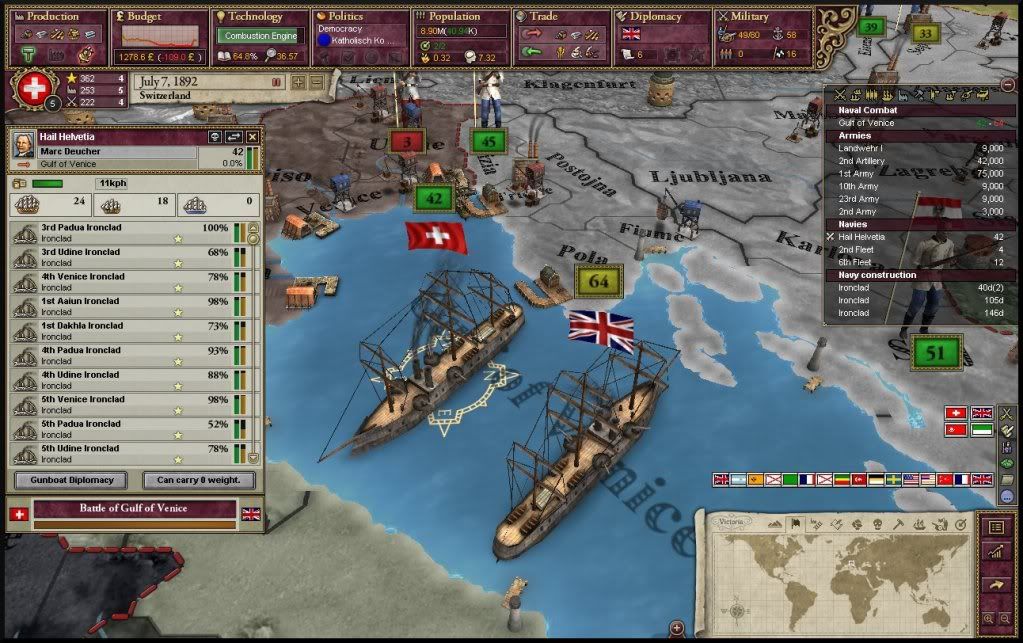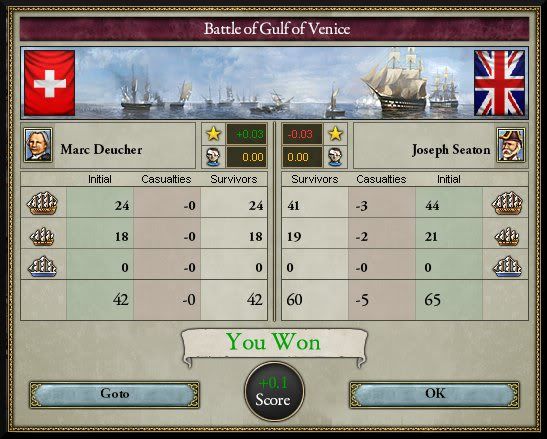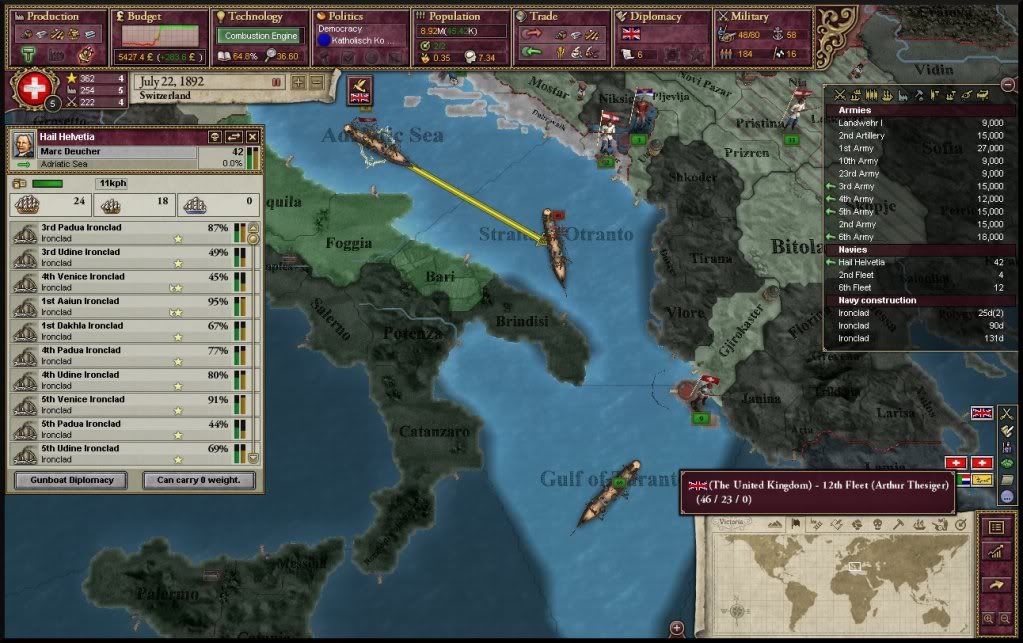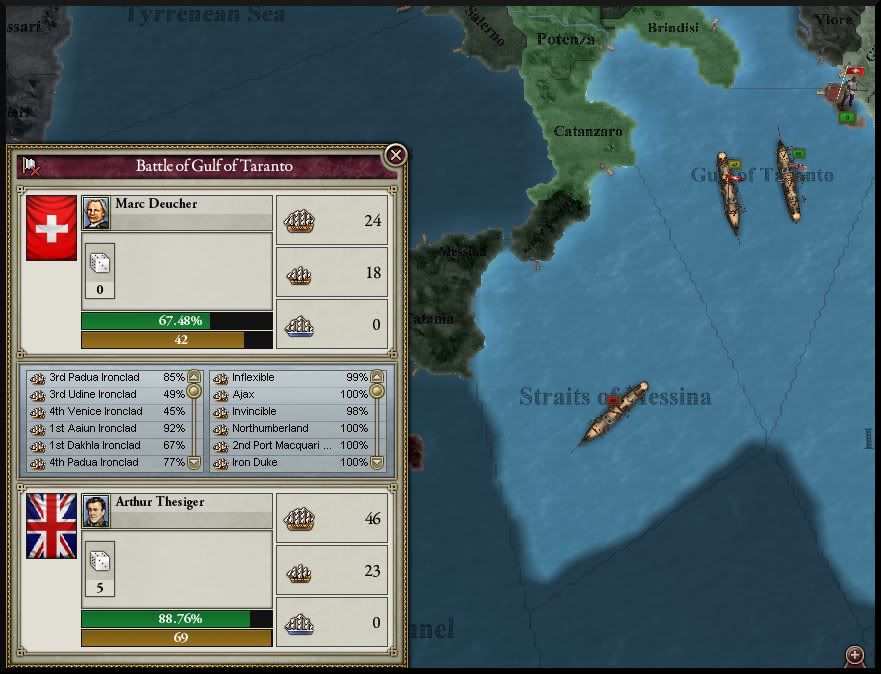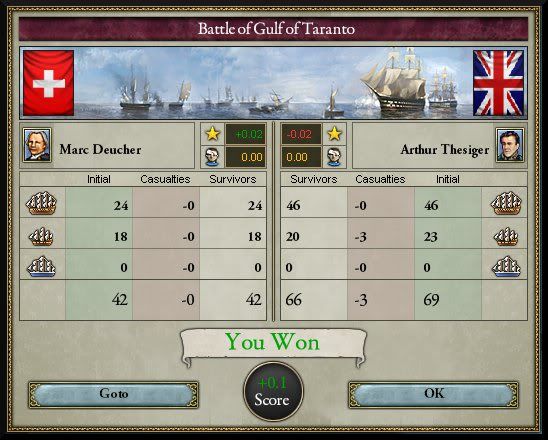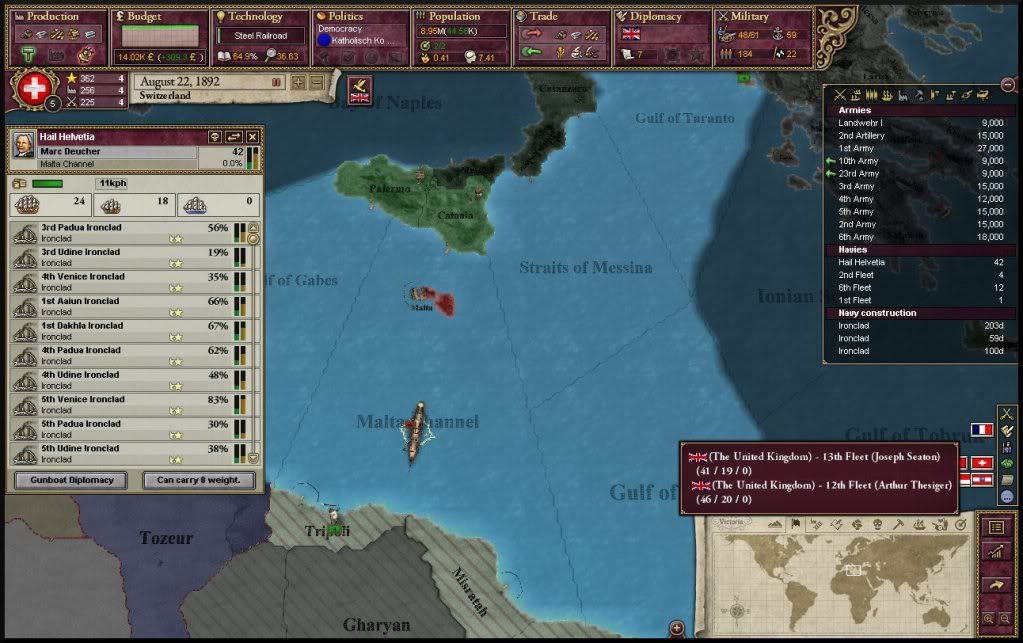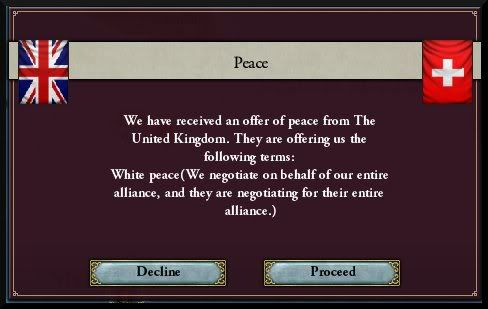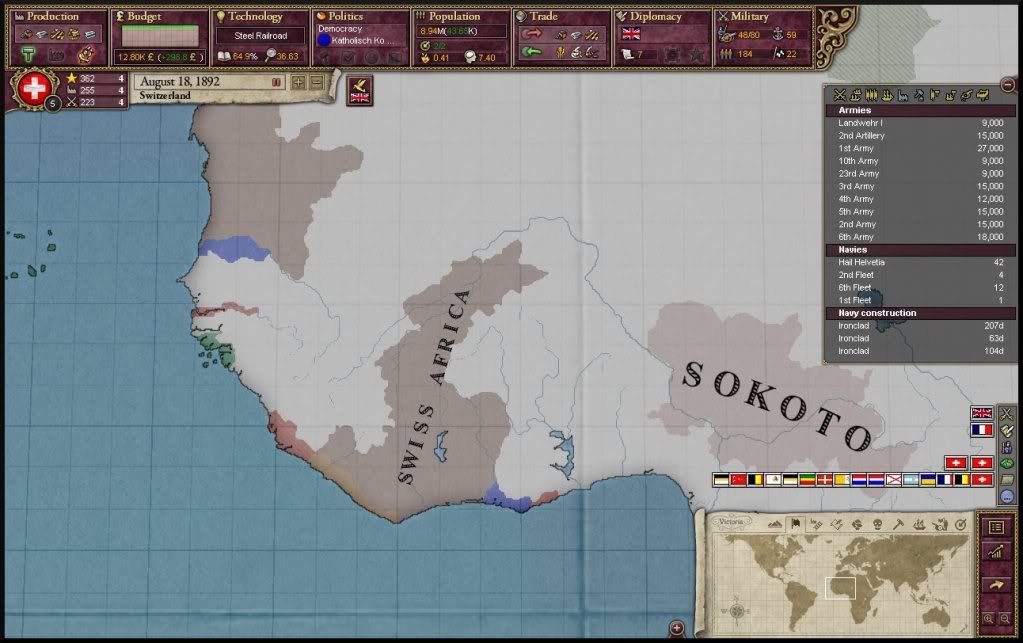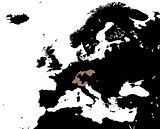Part 4: Schweizer Bundesmarine vs. Royal Navy
By 1890, the naval technology catch-up game was nearly done. First the ship designs were researched, so that the actual ships could be ordered. Then, doctrines were put up to "speed".
By 1890 the Swiss Navy comprised of 56 ships, all modern Ironclads and Cruisers, with some older Monitors among that. It was the fifth largest navy in the world. Still, it was dwarfed by the Royal Navy and its 273 ships.
A spy came to the audience chamber of Helvetia. "Mr. von Speichern-Neuladen," she enquired, "you have information on the British fleet?" -- "Yes, milady. I have been able to catch a precise glance of their technological setups. I believe that are very much on par with our fleet. The war you have in mind cannot be won by technological dominance as easily as the wars against Austria were. Here, see for yourself."
Still, Helvetia hoped that the Royal Navy had more older ships, and the fleets were more dispersed. The British Empire encompassed the entire world, after all. The combined might of the entire Swiss fleet might be enough to win some naval battles. We're not in it to win the war, only naval battles! The Schweizer Bundesmarine was no German
High Seas Fleet, it was there to fight battles. So, the moment we've all been waiting for, Switzerland dows the United Kingdom, in a suicide move.
The main fleet was sent to the Home Isles, as it was hoped that the main fleets of Britain would be found there. On the way, a few transport ships were found off the coast of Brittany.
The first battle between the Swiss and the British navy was a decisive victory for the Swiss. No surprise, as there were no warships involved on the side of the English.
After cruising the Channel and the Sea of Ireland in search for the UK fleets, a small fleet was spotted, again, off the coast of Brittany. Admiral Herzog ordered full speed ahead, but the lookouts already reported a larger British fleet approaching. This would turn out to be the first larger naval battle of the war.
The British fleet steamed into the battle to protect the transports. In numbers a bit smaller than the Swiss fleet, it nevertheless proved a worthy opponent.
Still, victory in this first major naval battle would be with the Swiss. Their larger fleet had won the battle!
Admiral Herzog immediately ordered his damaged ships to follow the fleeing English ships to the Doggerbank, where he finally could engage the enemy once more. Luck was on the Swiss side. The British admiral had decided to launch a counter-attack, but was ill-suited in doing so (Att -4!).
This battle was also won, as the fleeing British were very disorganised. Only few ships were sunk, mainly smaller, older wooden vessels. Given the luck we had with the -4 leader on the side of the UK, and given that we were chasing a routed fleet, this is disheartening. The Swiss would need decisive naval victories to win this war. The UK had all the naval advantages in her hand.
Another battle was fought, but admiral Deucher (who had taken over command) received a telegram ordering him to return back home as fast as possible. A large UK fleet had arrived in the Gulf of Venice, blockading the Swiss ports. Vital goods were no longer arriving, especially steamer convoys which had to be imported. This would cripple the war efforts of Switzerland, and its navy in particular.
Deucher arrived in Venice days, too many days later. The battle was fierce, as the Swiss knew this would be probably the most important battle of the war.
The UK had more ships, but not all were of the modern, Swiss types. Their admiral was also much better suited as the old enemy in the Doggerbanks. Nevertheless, the Swiss navy managed to win this battle with a little luck. Only few Royal Navy ships were sunk, and all were old, wooden ships.
Deucher immediately ordered his fleet to pursue the fleeing Brits. His ships were damaged, but so were the English ones. What he did not see was that a second British fleet, of comparable size already waited in the Gulf of Taranto, guarding the retreat of the first fleet.
The naval battle of Taranto was fought, with the British aim of giving their retreating first fleet enough time to retreat to Malta. Ironclad battled ironclad, with the British navy being again numerically superior.
Still, again this battle was won. A Pyrrhic victory, admiral Deucher mused.
While Deucher had lost none of his ships, the only ships sunk of the British fleet were again a few old wooden frigates. He ordered a pursuit again, but by now his own fleet was very damaged. The combined British fleets were in Malta, a port were repairs were undertaken already. The British outnumbered him nearly 4-1, and could exit port any time.
All the battles were won, but the war was lost anyhow. The British ships were repairing in Malta, while the Swiss navy blockaded the port in a last attempt to press for victory. Once the British ships would exit port, the resulting battle would be too much in the UK's favour. The fleets outnumbered the Swiss fleet substantially, and there were plenty more English ships around the world that could enter the fight. There was no way to secure a landing on British soil, and even should this be possible, the British army was far larger, and technologically equal.
The wartime upkeep of the huge fleet cost as much as the entire expenses of the Swiss government combined. Steam convoys could only be imported, and the Royal Navy could easily begin their blockade once more. Deficits were soaring and cash was running short. Helvetia needed to accept the White Peace offer of the UK. Time to cut down the navy, rebuild the lost ships, and expand the industrial base to be able to support a larger navy.


